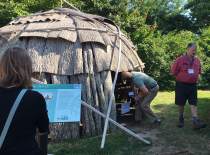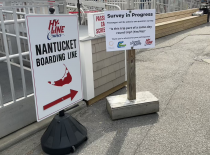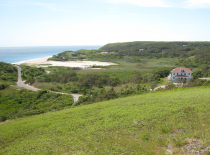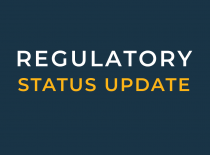All Posts
Cape Cod’s architectural character is a defining feature that shapes the region’s unique appeal. The look and feel of Cape Cod’s buildings are integral to its identity. When considering multifamily developments, design and aesthetics are essential to a finished product that will fit in with the region’s identifying look and feel. To preserve this distinctive charm and ensure that new developments and renovations blend into the Cape Cod landscape, the Cape Cod Commission worked with Utile and Outwith Studios to create the Cape Cod Housing Design Guidelines and Retrofit Design Guidelines.
This month, Senator Elizabeth Warren, Senator Ed Markey, and Representative Bill Keating released a report detailing the urgent need to replace the Bourne and Sagamore bridges. Entitled “Cape Cod Bridges Replacement: An Urgent Need,” the report includes data and information from thirty-six local stakeholders, including the Cape Cod Commission, highlighting the critical regional importance of the bridges.
The Commission is currently conducting a regional broadband assessment, offering municipal digital equity planning, and coordinating with the statewide digital equity plan.
Bringing underrepresented histories to light has become a top priority in historic preservation in recent years and in work to improve equity and build strong communities.
It's 6:00 a. m. in Hyannis, and the ferry docks are busy. A long line winds through the lot, comprised of passengers waiting to board the boat to Nantucket.
The Cape Cod Commission is developing strategies to maintain existing and encourage new compact, mixed-use development on Cape Cod.
A new report issued by the Federal Highway Administration highlights the Cape Cod Commission’s ongoing collaborative work with the Cape Cod National Seashore, including the effort to produce and implement the Outer Cape Bike and Pedestrian Master Plan.
This Regulatory Update provides a status on projects currently under review by the Cape Cod Commission. Visit www. capecodcommission.
The Cape Cod Commission has developed flood area design guidelines for Cape Cod that outline strategies for reducing or eliminating hazards from sea level rise and storm surge while protecting the region’s distinct character and historic resources
This Regulatory Update provides a status on projects currently under review by the Cape Cod Commission. Visit www. capecodcommission.









